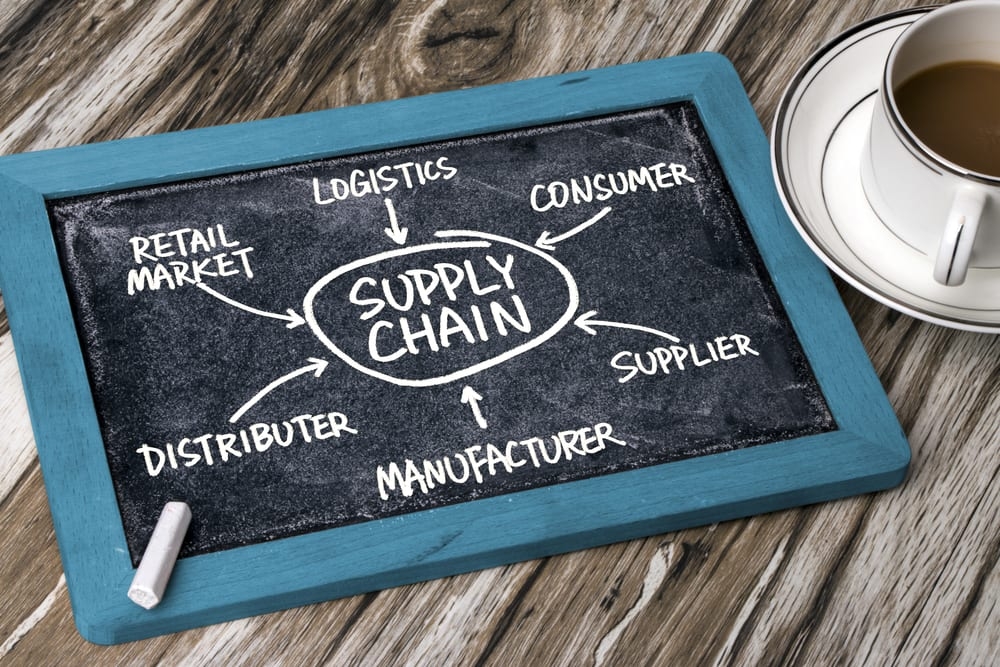New Citi-EIU report highlights resiliency of Asia-Pacific supply chains during pandemic
 |
| Supply chains in the Asia-Pacific appear more resilient to the pandemic |
The new report, “Disruption, Digitisation, Resilience: The future of Asia-Pacific supply chains”, is based on a survey of 175 global supply-chain managers across six primary industries (automotive, footwear and apparel, food and beverage, manufacturing, IT-tech-electronics, and healthcare-pharmaceuticals-biotechnology) and explores changes in supply-chain strategies in the Asia-Pacific region.
All respondents are involved in or have oversight of supply-chain decisions in the region.
Over half the supply-chain managers in Europe and North America say that increased concerns over the resilience of existing supply chains is the top factor driving their Asia-Pacific supply-chain strategy, but just 3.2 per cent of managers in Asia say so. Instead, 46.4 per cent of this group pick the ongoing impact of the pandemic as the top driver of their supply-chain strategy.
This reflects a more bullish view of globalisation and international supply chains among supply-chain managers in the Asia-Pacific. Only 9 per cent of supply-chain managers in the region are concerned about a breakdown in global trade, compared to 52 per cent of managers based in Europe and North America.
| The pandemic has also resulted in a greater focus on the digitisation of supply chains and investments in technology for purposes such as trade facilitation, supply and demand forecasting, financial management, and inventory management. |
Supply chains in the Asia-Pacific appear to be relatively more resilient, but the pandemic is leading to a broader rethink of supply-chain strategies for the longer term, the research finds.
While longer-term changes in supply chains, dictated by geopolitical and economic factors, were already underway before the outbreak of the virus, the health crisis is accelerating these changes and leading companies to re-evaluate their strategies for the future.
A third of all companies are conducting a complete overhaul of their supply chains, and these changes are geared towards the longer term. Only 22.9 per cent of supply-chain managers say they are not making any significant changes to their supply-chain strategies.
From a sectoral perspective, close to half or 48.3 per cent of supply-chain managers in the automotive sector and 40 per cent in the footwear and apparel industry are conducting an overhaul of their supply chain strategy; higher than the survey average of 32.6 per cent.
This compares against 16.7 per cent for the IT/tech/electronics industry, 23.1 per cent for manufacturing, and 33.3 per cent in both the food and beverage and healthcare/pharmaceutical/biotechnology sectors.
This corresponds to the level of disruption faced by these sectors with the Automotive industry taking the strongest hit as it faces production stoppages, trade restrictions, and difficulties in access to primary inputs.
The pandemic has also resulted in a greater focus on the digitisation of supply chains and investments in technology for purposes such as trade facilitation, supply and demand forecasting, financial management, and inventory management.
Of all supply-chain managers surveyed, 32.5 per cent say their companies have increased investment in digital tools or processes by more than 50 per cent as a result of the pandemic.
While this number stands at 12 per cent among managers in Europe and North America, it shoots up to a shade over 40 per cent among managers in Asia. These investments are largely in the areas of trade facilitation, forecasting and predicting, inventory management, and manufacturing processes.
“While industries are responding differently to the range of challenges they are facing, they are doing so with a common goal in mind – to make their supply chains more resilient. Increased investments in technology and digitisation will help companies build resilience while advancing digital trade and supply chains more broadly,” said Rajesh Mehta, Asia-Pacific head, Treasury and Trade Solutions, Citi. “As a global network bank with a presence in close to 100 markets, we continue to actively support our clients, leveraging our financial and product expertise, advisory, and digital capabilities to navigate the evolving operating environment and consequently, its impact on supply chains.”
Chris Clague, Asia Editorial lead, Trade and Globalisation at the EIU, and editor of the report, said, “Supply-chain managers based in the Asia-Pacific region are clearly more optimistic about the resilience of the region’s supply chains than managers based elsewhere. This stems from factors such as greater confidence in globalisation and a more nuanced understanding of different markets here. That said, the pandemic has resulted in companies thinking deeply about what its effects and longer-term geopolitical and economic trends might mean for the resilience of their supply chains.”
What the stars mean:
★ Poor ★ ★ Promising ★★★ Good ★★★★ Very good ★★★★★ Exceptional
Related Contents
Latest News
More News
- Unlocking capital flows for strategic and suitable projects (January 18, 2026 | 09:00)
- ACV begins cargo terminal construction at Danang Airport (January 17, 2026 | 15:57)
- Viettel starts construction of semiconductor chip production plant (January 16, 2026 | 21:30)
- Bel expands Vietnam production with $19.7 million investment (January 16, 2026 | 16:07)
- ASML signals long-term commitment to Vietnam (January 16, 2026 | 12:00)
- Ho Chi Minh City starts construction of four key infrastructure projects (January 15, 2026 | 17:22)
- PIDG invests with AquaOne to expand Xuan Mai’s treated water supply to Hanoi (January 15, 2026 | 11:16)
- Vietnam ranks 38th in global AI adoption (January 14, 2026 | 16:01)
- European business confidence reaches highest in seven years (January 13, 2026 | 10:17)
- Vietnam’s regional influence draws renewed global attention (January 12, 2026 | 13:59)

 Tag:
Tag:

























 Mobile Version
Mobile Version